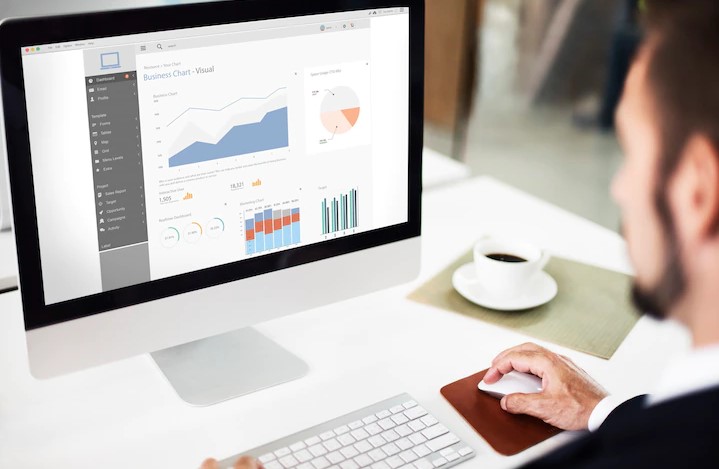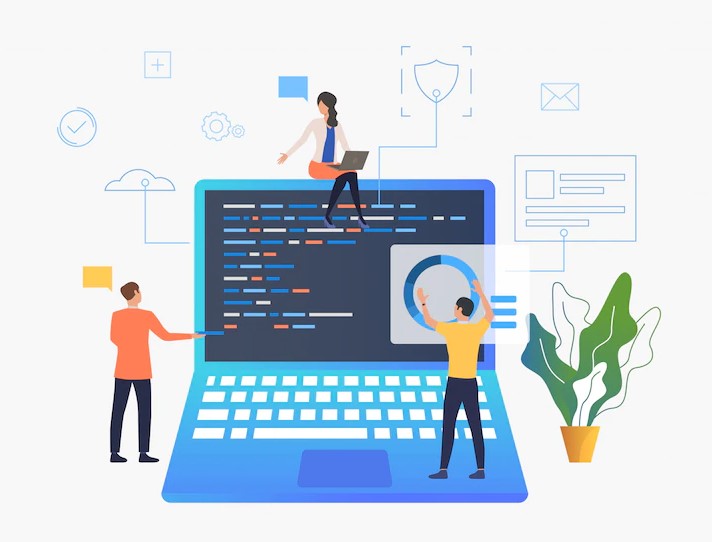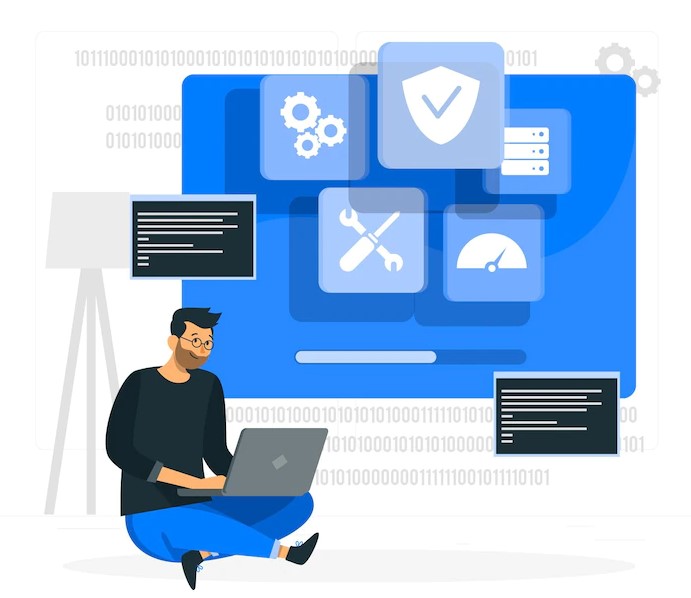How does an ERP system work?
April 18, 2022
Table of contents
Quick Access

The organization is essential for a business to prosper and succeed. The agility with which tasks and processes can be executed is also important so that productivity is maintained and your company's customers are satisfied and have a good experience. An ERP software can make a big difference in your workflows since on the same platform you can manage the most important processes of your company.
How an ERP improves the performance of a company
In a classic and traditional company, each department manages its affairs separately. In other words, the accounting department has its own systems and procedures, the same is true for the marketing department, and so on with all areas of the business. And it may be that each department carries out its management in an orderly manner, but when reviewing the general panorama, the situation can be complicated since there is no synchronization between the business areas.
“ERP can improve a company's business performance by developing the most efficient way to plan and schedule resources and optimize productivity. An example of how ERP does this is through the use of workflows that streamline business processes, carefully track employee performance, and analyze the results. This provides business owners with visibility into the data, allowing them to see which parts of their processes are most productive and which need to be improved," they detailed in the Abas-ERP portal.

An ERP CRM software also allows real-time monitoring of customers and suppliers, being able to improve the relationship with both customers and the company's suppliers.
How does an ERP work in an organization? Well, in the following way: from a single platform, through different modules, the company's personnel will be able to manage each area of the company, centralizing and interconnecting the data, so that everyone is aware of the company's processes. company and that all procedures become more agile, with information available in real-time.
Given this, of course, companies need ERP software that allows them to keep important information concentrated in a single platform, so that decisions can be made more easily, quickly and in a timely manner, without having to jump from one platform to another looking for any information.

How to choose an ERP software
We know that new platforms in a company can be intimidating at first. But you can rest assured that ERP software does not represent anything cumbersome, quite the opposite. It fully adapts to the nature of your organization and your team.
“ERP doesn't require companies to adapt their business processes to fit their system. Instead, it is a flexible solution that can be customized to the needs of the organization. And it integrates with the company's existing database and operating systems,” they added in the same Decision article.
Analyze company needs
Before making any decision or choosing an ERP software, what you should do is form a team in your company that will help you analyze the different options that exist in the ERP market.
"This team will help you capture the greatest needs of your organization and prevent key considerations in selecting an ERP system from being lost," the Crowe portal said in an article.

They emphasize that the more involved the staff from the different departments are, the faster they will feel familiar with the ERP system: “Consider people in the areas of accounting, inventory, order management, human resources, and customer relationship management”.
“Each business area will provide a unique angle on your organization's pain points, critical needs, and future needs. Building an effective team from the start can take time, but in the long run, it will save you time, resources, and frustration".
Determine what your ERP should have
It is important that you evaluate whether the ERP you are going to choose can generate accurate and timely reports and how much visibility it offers in terms of sales and production processes. Regarding the user experience, an important topic, ask yourself how intuitive the software is, whether or not it will affect the productivity of the employees and if the cost-benefit is justified.
Another important aspect is that this ERP software is accessible through mobile devices such as cell phones or tablets, an essential feature today since all users try to do their business through smartphones.
Choosing the ERP software provider: issues to consider
There are hundreds of ERP software vendors in the industry, which can be overwhelming when making decisions and choosing one. We know that you want to choose the best, but at the same time among so many options you can feel disoriented.
Take these considerations into account when choosing an ERP software:
- Assess the vendor's experience, what industries they've worked in before, and what experience they have in your particular industry, Crowe explains.
- Ask if this ERP software allows any type of customization or if the configuration is already predetermined. This is essential to know if it will cover the needs of your business.
- Find out if this ERP software contains the modules you need in your company and if the platform is aimed at small, medium or large companies.
Make the decision right now to start the digital transformation of your company, with the implementation of an ERP software that allows you to integrate all the data of your business departments. At Rootstack, we have +10 years of experience advising companies on their digital leap. Do you have any doubt? Contact us!
We recommend you on video:
Related Blogs
-11.27.07-a.m.png)
Rootstack wins Gold Stevie® Award in 2024 Stevie Awards for Sales & Customer service
-1.11.48-p.m.png)
What are the steps for implementing a point of sale system?
-12.54.38-p.m.png)
What is a point of sale system and what are the types?
-4.51.57-p.m.png)
Keys to using IT outsourcing for machine learning and AI projects
-10.22.51-a.m.png)
Reasons why you should hire IT staffing agencies in Atlanta
-10.22.51-a.m.png)